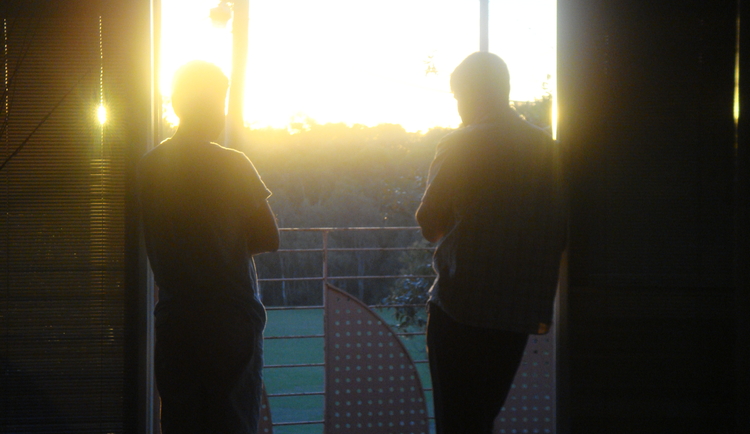SLOWING DOWN YOUR MIND- PART 1

Often times there is not much we can do to change our external circumstances. Life just goes on. Work, family, health concerns, problems, and difficulties are all an integral part of life. There is no one, absolutely no one who has a perfect life, no matter how things appear on the surface. What’s more important is the state of your mind, emotions and thoughts. As the saying goes, “It’s not what happens to us that’s important, it’s how we respond”. And often, the only thing we can control is our mind, thoughts and emotions.

When talking about slowing down the mind or switching off our thoughts, I refer to times of inaction, quiet or solitude. Remember, the mind is an instrument that needs to be under our control. There is no point having a calm, slow mind, if it’s sluggish like a bear and incapable of quickness and sharpness when necessary. To quote another cliché, “the mind is a great slave, but a terrible master!” As long as our mind is doing what we ask of it, then there’s no problem. That means we should be able to whip into action when needed, but more importantly, we should know how to switch it off.

Have you ever noticed how often your mind is filled with one repetitive thought after another? Sometimes it’s like a prerecorded reel that keeps going over and over again without any control. You recall situations and play them over and over in your mind. You rehearse what you are going to say when you see someone the next day. You don’t really listen when the other person is talking. Even in our sleep it’s still going. The nervous mental energy that persists, leaves many feeling constantly on edge, but at the same time exhausted. You need to know how to slow it down and switch it off.

Some people are fortunate enough to be able to do this quite naturally and easily, but many find it very difficult. The good news is that this is a skill that can be learned and refined through practice. Managing our minds is like any other skill. Here are two ways that we can start bringing our mind under greater control.
- Exercise– moving the body is one of the simplest and easiest ways of slowing the mind. It need not be anything complex. A simple brisk walk or leisurely stroll in nature is sufficient enough to dissipate stress and mental tension. Whilst doing this be sure to breathe deeply and fully and consciously let go of any tension. If you have the time and space, try and incorporate some gentle stretching as well. Mental tension gets stored in physical locations with each one of us being different. Physical movement releases this tension. This complex mind is not just confined to the space inside our skull. What we call the mind, actually exists in every cell of the body. In that sense, it makes perfect sense that physical activity makes our minds feel calmer, clearer and less cluttered. Find an activity that you enjoy and is suitable for your age and stage. Yoga, dance, cycling, swimming, climbing, hiking, weightlifting, netball, golf or any other activity! You choose. Just don’t choose nothing. Make exercise a non-negotiable part of your daily routine.

- Meditation- some people find this more challenging, but the practice of meditation goes straight to the source of the problem and solution. Simply by becoming more aware of your mind, along with the emotions and thoughts that it houses, you will be able to bring it under your control. Remember though, that the nature of the mind is to think, move and feel, so no activity, apart from death will actually switch it off! Unlike what many think, meditation is not stopping our thoughts. However, by the becoming aware of it’s movements, and practicing techniques of meditation, you will learn to dive beneath the turbulent waves, and experience a refreshing stillness that comes from the depths of yourself. It is an investment that will reap great rewards in your life if you dedicate some time to knowing and understanding your mind. Clearly one of the most challenging stages of life is at the end of life. If we master our minds during our life, then even this final transition will be a smooth one. By this stage we would have learned to relinquish the clinging to life that creates much suffering when a person dies. Again, make some quiet time, a non-negotiable part of your daily routine.

All changes take time, so be patient with yourself. Remember, you have worked your whole life to create a mind that is disorderly, random and chaotic! Simply doing a weekend course in meditation aint gonna fix that! You need to tend to your mind in the same way that a diligent gardener tends to their garden. The great Buddhist teacher, Thich Nhat Hanh, talks about treating our minds with loving kindness. Just as a gardener slowly prunes, trims, plants, waters, and fertilizes, so to you need to do the same with your mind.
You can create a beautiful, calm and happy mind.
Be well
Ranjit
